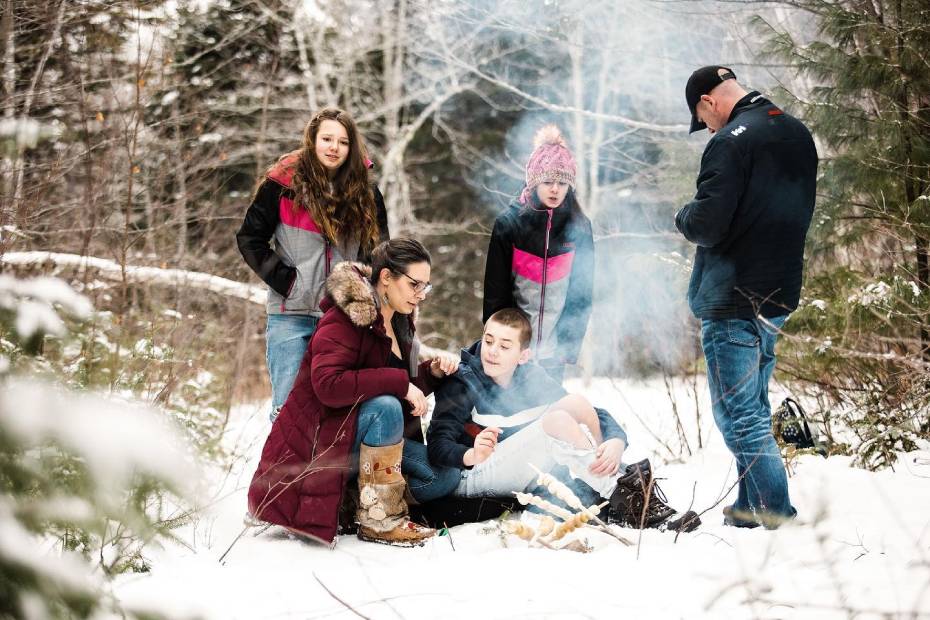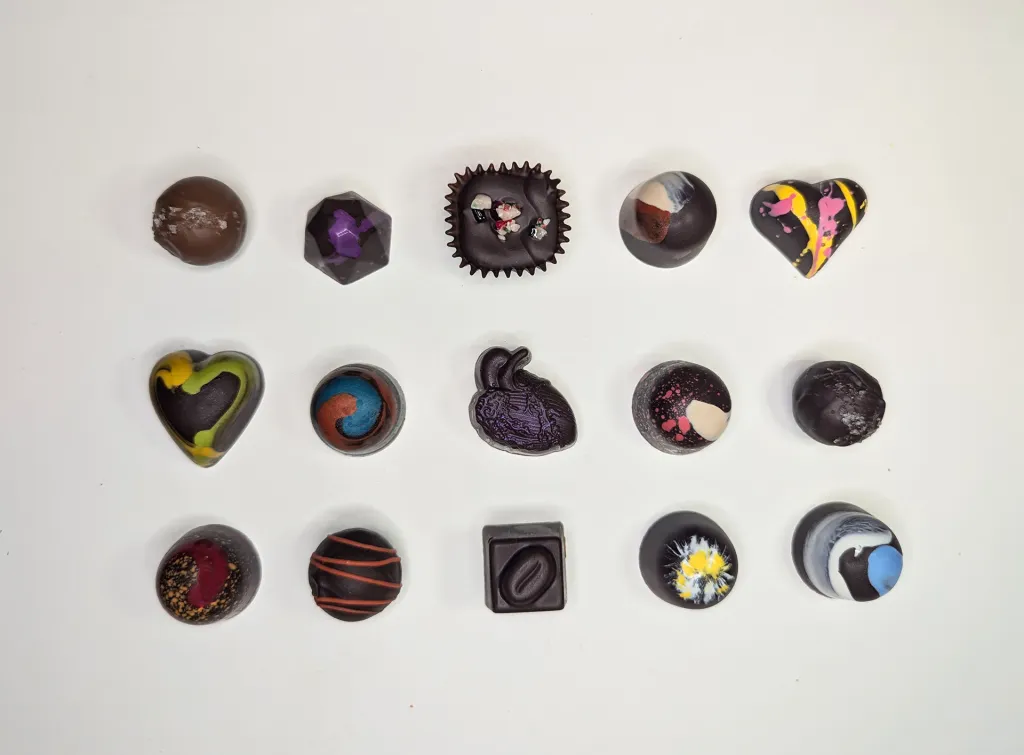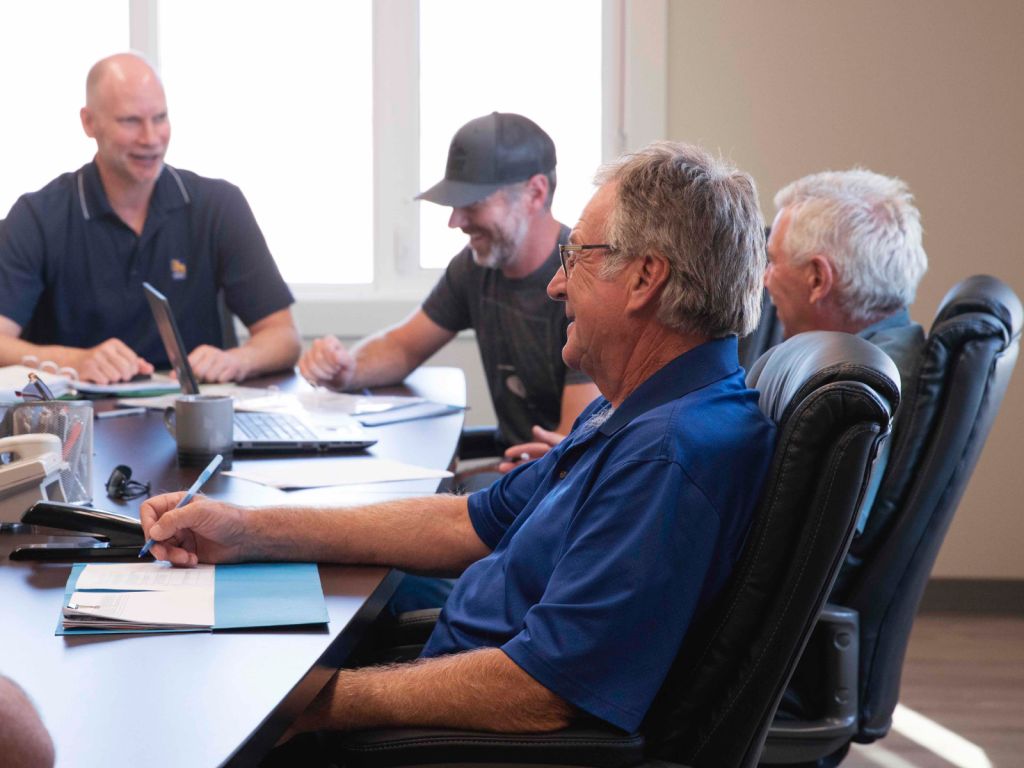Published June 24, 2022 • 5 Min Read
“Nothing in life is a guarantee. Everything can change at the drop of a hat. So why not try something that I had always wanted to try?” That was Indigenous entrepreneur Jenna White’s mindset when she started her business, Jenna’s Nut-Free Dessertery. She knew all too well how quickly life could change.
Five years ago, she suddenly developed a severe nut allergy that changed how her family ate and shopped for food. Five months later, White became legally blind, making life with a nut allergy even more challenging. After spending time grieving, she decided to make some changes of her own.
Cooking up changes
“I had been a stay-at-home mom for my children’s entire life. When I was a kid, I always wanted to either have a bakery or a restaurant because I love being in the kitchen, and I love feeding people,” she recalls. White took advantage of New Brunswick law that allowed her to use her home kitchen to make food to sell at farmers’ markets as a test of commercial viability.
She was the only nut-free vendor among many baking stalls, and her business was taking off when the pandemic hit and closed down the market. White had to go big or go home: move to a commercial space or wait it out.
Just enough cooks in the kitchen
With the help of Women in Business New Brunswick, she re-wrote a business plan and accessed funding to turn her recipes into baking mixes she could package and sell. With product in hand and a business plan, she received funding from Planet Hatch, a local incubator, for a commercial space to create baking mixes and mill flour. She then added on a restaurant and an in-house bakery.
Her mixes are now in four stores and multiple subscription boxes. Bannock is her top seller mix, and it’s sold in two formats, one for the kitchen and one that can be mixed in a bag and then cooked on a stick over a fire. She loves sharing her culture through food and hopes she’s sharing inspiration too. “I hope I can help inspire the next generation to actually follow their dreams because I’m doing what I wanted to do when I was a child,” she explains.
A blind baker’s tips about rising to the top
After her incredible journey, she has advice for aspiring entrepreneurs:
-
Test the viability. It helps people take you seriously, and it’ll help you take yourself seriously because you know what you’re doing is worth it.
-
There are going to be so many obstacles that come your way, and very little is going to work out how you expect.
-
Find a way around an obstacle: go around it, go over it, go under it — but find a way to the other side.
“Because whatever’s waiting there is better than you could imagine,” she smiles, adding, “If you don’t do it, you will always wonder what would happen if you did.”
White loves what she finds on the other side. “I definitely love being able to work for myself and to be able to pour my passions into it … My favourite part about being an entrepreneur with disabilities is I get to make life work for me.” She knows as a blind person, she would be unlikely to find employment in a restaurant, but she can set up her own kitchen in a way that works for her so she can pursue her dreams. It was a big change, but she didn’t have to do it alone.
Mixing things up online and in the community
“The ‘Moving Women Online’ initiative by WBNB gave me the tools and confidence to dive into e-commerce and set me up for our expansion,” she reflects. The Indigenous Women Entrepreneur workshops hosted by Women in Business New Brunswick (WBNB), with the support of RBC, connected White to other local women in business and Natasha Martin-Mitchell, their Development Officer for Indigenous Women Entrepreneurs.
“I love what I do. I love meeting the women. I love helping them and elevating them and bringing them to a higher level,” Martin-Mitchell exclaims. As part of her role, helps women connect through an online platform where artisans and business owners can expand their reach beyond their local community. Now 40 women are part of the initiative.
Learning together makes life sweeter
Along with the platform and many other initiatives, Martin-Mitchell hosts workshops where successful Indigenous women entrepreneurs can share their journeys and encourage participants as they grow. With the world opening back up, she’s hosting pop-up shops around the province where hundreds of people show up and has plans for a conference.
Building skills and community, Martin-Mitchell is making a difference in the lives of Indigenous women business owners in New Brunswick. For business owners like baker Jenna White, success in business and being part of a community of Indigenous women in business is a special (nut-free!) treat. Both women know how life can change at the drop of a hat, and they each found their own way to success and community even in uncertain times.
Discover how RBC is partnering with Indigenous communities to make a difference.
This article is intended as general information only and is not to be relied upon as constituting legal, financial or other professional advice. A professional advisor should be consulted regarding your specific situation. Information presented is believed to be factual and up-to-date but we do not guarantee its accuracy and it should not be regarded as a complete analysis of the subjects discussed. All expressions of opinion reflect the judgment of the authors as of the date of publication and are subject to change. No endorsement of any third parties or their advice, opinions, information, products or services is expressly given or implied by Royal Bank of Canada or any of its affiliates.
Share This Article






